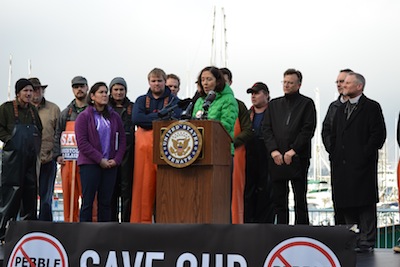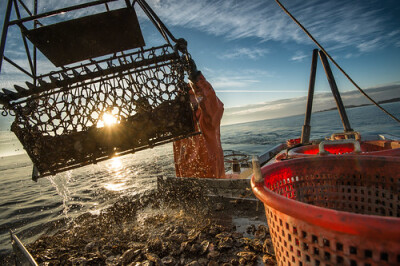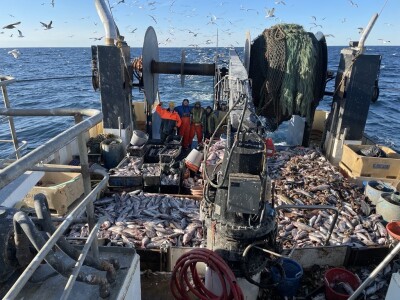Someone asked me last night why fishermen are so angry. I live in Maine. When fishermen are in the news it’s over a contentious issue, like an area closure or reduced quota. In televised meetings fishermen speak their minds and tempers can flare. My answer was that often fishermen don’t feel like anyone’s listening.
These televised glimpses don't paint an accurate picture of fishermen in general, but the rules and quotas handed down affect their livelihoods. It's good to speak up. Sometimes if you yell loud enough and long enough, someone hears you.
That seems to be happening in the battle to protect Alaska's Bristol Bay. The Environmental Protection Agency released its final draft report on the potential harm to the area from large-scale mining operations and Alaska Sen. Mark Begich (D) came out against the project last week. A rally held in Seattle on Friday (shown below) drew more than 200 fishermen and supporters.
That fight goes on. While the EPA report advises against the mine because of its threat to the valuable salmon watershed, the agency needs to issue a 404(c) to actually prohibit development. Brett Veerhusen of Commercial Fishermen for Bristol Bay says a final decision could come in a couple months.
But I think it's good to go beyond battle-mode. The advocates for Bristol Bay have done this by using the Pebble Mine issue as a platform to spread the word about the value of their fishery. As Begich said in his release, the region "produces half the world’s red salmon and supports thousands of fishing jobs and way of life for thousands of Alaskans.”
More people need to understand that value. Yesterday, I talked to Laine Welch. She’s been the voice for commercial fishing on Alaska public radio since 1988. She wants more people to understand that the fishing industry provides more jobs than oil, gas, timber and tourism combined.
I like the example she's giving people: In her home of Kodiak there are about 700 boats in two harbors. She’s trying to make people see that each one of those boats is an individual storefront. They're small businesses. Each one supports one or more more families.
This example applies to every coast. If you value something you need to not only show it, but help other people understand why it's worth something too. If not, you stand to lose it all.







